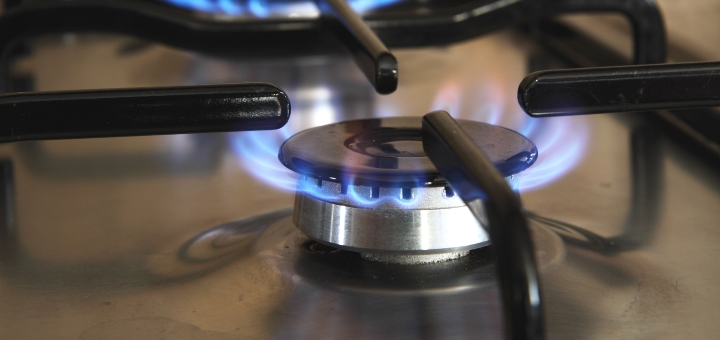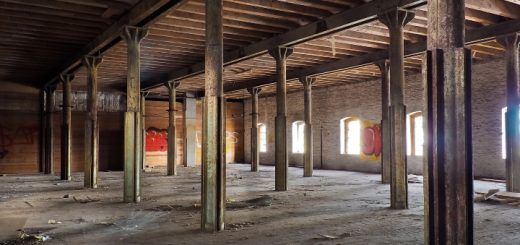Are gas safety checks in the UK good enough?

The fact that gas safety has been branded as a ‘postcode lottery’ for the five million privately rented properties in the UK, heedless of the government’s requirements, is very concerning.
Plus, it’s not just property owners who have the issue. More than one in five small-business energy users do not realise that their insurance could be invalidated by a failure to conduct a yearly gas safety check.
A gas safety check entails more than just box-ticking from a gas fitter. Fuel leaks, fires, carbon monoxide poisoning, explosion – they are all potential results of a poorly maintained (or poorly fitted) gas appliance. Landlords who don’t comply with gas safety checks are risking tens of thousands of pounds in fines.
So, as a country, are the currently methods of gas safety checks too lax? Are lives in danger as a result? And what can landlords do to ensure the safety of their property?
Are the correct measures being neglected?
The requirements of gas safety for landlords do vary from area to area. Under the Landlord Licence Scheme, landlords must prove they’ve met the legal requirement for an annual gas safety check in all their properties before they can let them out.
However, just 40 local authorities across the country currently operate a Landlord Licence Scheme in their area.
Gas safety is frequently overlooked. Yes, most landlords are well aware of what’s required to keep their properties and their tenants safe – but there are still many premises at the mercy of negligent landlords who are carrying out suspect DIY heating repairs or skipping annual checks altogether.
What’s more, with 7,500 unregistered gas fitters responsible for 250,000 illegal gas jobs in the UK every year, rogue traders are still very much a problem nationwide.
Energy users were also noted to have a lack of awareness of gas safety checks. For example, a shocking number of small businesses that are using mains gas are failing to stay on top of gas safety in the workplace.
In fact, a recent survey found that 23% had no idea that their gas appliances needed to be checked on an annual basis – and a worrying 18% haven’t had a visit from a Gas Safe Engineer in the last year.
The impact for landlords
The responsibility for a property being gas safe is down to the landlord. So, how can landlords ensure their premises are fit for purpose – and keep energy users in the loop? Flogas, who offer competitive business gas tariffs, give a rundown of the steps to take:
1. Maintenance
Always use a Gas Safe registered engineer to service your gas appliances, such as the boiler, and to maintain any chimneys or flues, or gas pipework.
The manufacturer’s instructions should outline how often appliances should be serviced, but if these are not available then the Gas Safe Register recommends servicing once a year. Appliances owned by tenants don’t fall within this remit, and neither do flues that connect only to tenants’ appliances.
2. Yearly checks
A full gas safety check is required once a year. Make sure this is done by a Gas Safe registered engineer, and that all gas appliances and flues are checked. Again, you don’t need to organise checks for any of your tenants’ own appliances (or flues that connect only to appliances owned by the tenant).
3. Records
You must have a Landlord Gas Safety Form for all gas safety checks on your property. As well as keeping a copy for yourself (for at least two years, or until a further two checks have been carried out), you must provide your tenants with their own copy within 28 days.
For new tenants, it’s at the start of the tenancy, and for any rental periods shorter than 28 days, simply display the record in a prominent place in the property.
Changes to gas safety checks this year
As of April 2018, landlords can book their gas safety check up to two months in advance, without causing issues with the expiry date on their current certificate. You can now arrange a new check any time within 10 to 12 months of the last one – and when the old certificate runs out, the new one will simply run for the next year.
Occasionally, another safety check may need to be done earlier than expected. If this happens less than 10 months, or more than 12 months, before the last one, the expiry date on your new certificate will be one year on from its issue date. It’s worth noting that landlords who make use of the new rules must keep their gas safety records until two further gas safety checks have been carried out.
This new change allows landlords to arrange for a new check to occur before the old expiry date, without shortening the cover of the current certificate. It also makes it easier to keep track of renewal dates, as these stay the same each year.
UK landlords have been very accepting of this new change. They’re a way to uphold the very highest gas safety standards – whilst making the checks process more flexible and straightforward all round.
Click on www.gassaferegister.co.uk to find your local Gas Safe registered engineer today!










Gas safety checking shouldn’t be an annoying addition to a landlord’s schedule – it’s a necessary part of the job. If you can’t be bothered with it, you shouldn’t be a landlord, plain and simple. Transparency in this is paramount: your tenants need to know you care about gas safety, meaning they are more likely to report faults to you in quicker time, and thus they are far safer and less likely to suffer the consequences of a gas leak which could leave a landlord in big trouble.